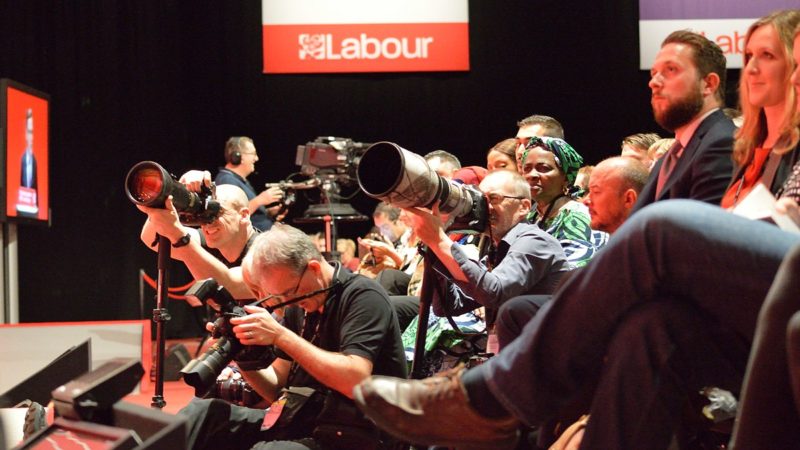As discontent grows on the Labour left, those who backed Corbyn still have a key role, writes Jeremy Corbyn’s former head of policy.

Last Saturday marked five years since Jeremy Corbyn won the Labour leadership. The 200-1 outsider – who only just scraped onto the ballot paper – opened a whole new era in the Labour party.
The new leader’s first actions were to attend a “Refugees are Welcome” rally in Parliament Square, having won on an anti-austerity, pro-public ownership and anti-war platform. In a clear choice on whether the party should move left or right post-Miliband, members old and new, trade union affiliates and registered supporters all voted overwhelmingly for Jeremy Corbyn and a shift to the left.
The 2017 election proved something important. Despite two years of very public disunity and internal obstruction, Labour could pull together an electoral coalition that delivered over 40% of voters and 13 million votes, coming within a whisker of denying the Tories government. Meanwhile, the 2019 election was essentially a re-run of the referendum vote with the Leave side United and the Remain side divided. Keir Starmer has wisely avoided reopening that battle.
Starmer recognises the power of the 2017 platform. He stood on a 10 policy pledge platform based on that manifesto, which he called a “foundational document”. It was this that encouraged many members who supported Jeremy Corbyn to vote for Starmer in 2020.
During the leadership election, many others on the left were unconvinced and backed the Campaign Group MP Rebecca Long Bailey (as I did). Since then many will point to Long Bailey’s harsh sacking and the paucity of policy or vision since and believe that Starmer is to be regarded as Blair redux.
The new Leader’s team have embarked on a discernible strategy: to establish himself as a competent leader, constructive in a crisis – someone to be trusted. He has so far eschewed policy announcements or visionary speeches, concentrating on this groundwork. While it has been immensely frustrating to many that Labour has not been vocal enough in setting out an alternative, Starmer’s Labour has still quietly forced some minor u-turns.
For socialists in the Labour party – whether members for a quarter of a century or just the last five years – there are three options: walk away and give up on Labour; stay and heckle from the sidelines, increasingly isolating ourselves; or engage and build alliances inside and outside the party to keep pressure on to maintain the policies to which Starmer attached himself.
The praxis of both Corbyn and John McDonnell throughout their political lives has been that final option. It was these alliances that formed a bedrock of support which helped win and maintain them in the Labour leadership.
The political centre of gravity within Labour has shifted – and alliances can be built for public ownership, the Green New Deal, redistributive taxation, genuine social security and the dismantling of the racist hostile environment.
The reality is that the left’s strength within the party (both organisationally and in terms of policy) is greater than at any point in my lifetime, with the obvious exception of 2015 to 2019. Now is neither the time to depart or despair, it’s the time to do the things we didn’t do sufficiently while trying to run and defend a precarious leadership: campaign, build and organise around the policies we know are necessary.
There are signs of optimism on this front from the grassroots left: Momentum is working with groups like Acorn and London Renters Union against evictions, and the more recently formed Don’t Leave Organise umbrella group has been working with the BFAWU and other unions for full sick pay for all workers. At the same time, Claim the Future – led by John McDonnell MP – is pulling together campaigners and policy experts on the issues highlighted throughout the Covid-19 pandemic.
All the structural conditions that gave rise to Corbynism still exist: for most working people the system doesn’t work – wages and work are insecure and housing unaffordable, while for people out of work or in care the system generates indignity and poverty.
As another former Labour leader said in an entirely different context: “This is a moment to seize … the kaleidoscope has been shaken, the pieces are in flux, soon they will settle again. Before they do let us reorder this world around us”. We have a world to win.
Andrew Fisher was the Labour party’s executive director of policy under Jeremy Corbyn.
To reach hundreds of thousands of new readers we need to grow our donor base substantially.
That's why in 2024, we are seeking to generate 150 additional regular donors to support Left Foot Forward's work.
We still need another 117 people to donate to hit the target. You can help. Donate today.



